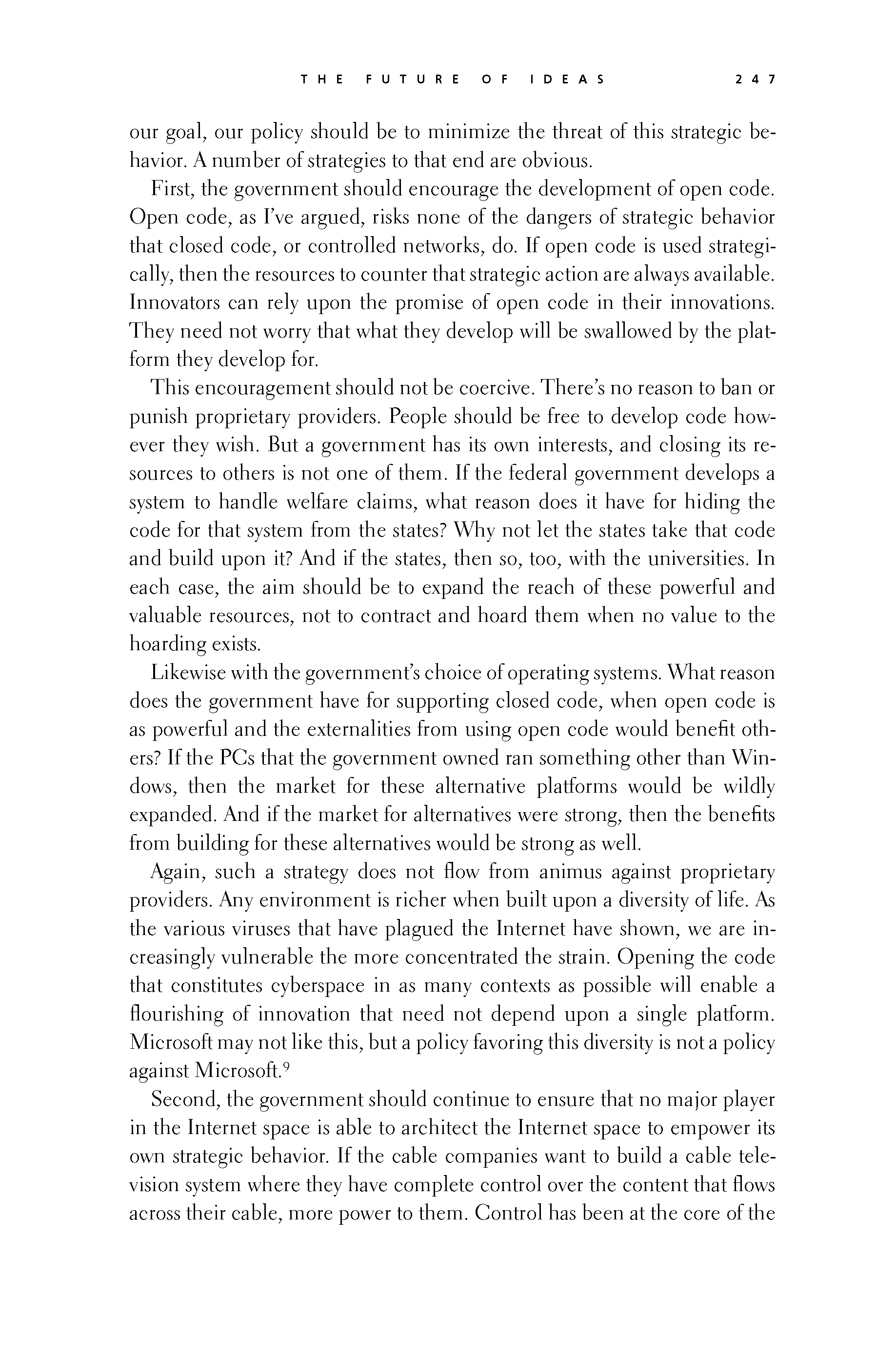 p246 _
-chap- _
toc-1 _
p247w _
toc-2 _
+chap+ _
p248
p246 _
-chap- _
toc-1 _
p247w _
toc-2 _
+chap+ _
p248
our goal, our policy should be to minimize the threat of this strategic be-
havior. A number of strategies to that end are obvious.
First, the government should encourage the development of open code.
Open code, as I've argued, risks none of the dangers of strategic behavior
that closed code, or controlled networks, do. If open code is used strategi-
cally, then the resources to counter that strategic action are always available.
Innovators can rely upon the promise of open code in their innovations.
They need not worry that what they develop will be swallowed by the plat-
form they develop for.
This encouragement should not be coercive. There's no reason to ban or
punish proprietary providers. People should be free to develop code how-
ever they wish. But a government has its own interests, and closing its re-
sources to others is not one of them. If the federal government develops a
system to handle welfare claims, what reason does it have for hiding the
code for that system from the states? Why not let the states take that code
and build upon it? And if the states, then so, too, with the universities. In
each case, the aim should be to expand the reach of these powerful and
valuable resources, not to contract and hoard them when no value to the
hoarding exists.
Likewise with the government's choice of operating systems. What reason
does the government have for supporting closed code, when open code is
as powerful and the externalities from using open code would benefit oth-
ers? If the PCs that the government owned ran something other than Win-
dows, then the market for these alternative platforms would be wildly
expanded. And if the market for alternatives were strong, then the benefits
from building for these alternatives would be strong as well.
Again, such a strategy does not flow from animus against proprietary
providers. Any environment is richer when built upon a diversity of life. As
the various viruses that have plagued the Internet have shown, we are in-
creasingly vulnerable the more concentrated the strain. Opening the code
that constitutes cyberspace in as many contexts as possible will enable a
flourishing of innovation that need not depend upon a single platform.
Microsoft may not like this, but a policy favoring this diversity is not a policy
against Microsoft.[14-9]
Second, the government should continue to ensure that no major player
in the Internet space is able to architect the Internet space to empower its
own strategic behavior. If the cable companies want to build a cable tele-
vision system where they have complete control over the content that flows
across their cable, more power to them. Control has been at the core of the
[[247]]
p246 _
-chap- _
toc-1 _
p247w _
toc-2 _
+chap+ _
p248